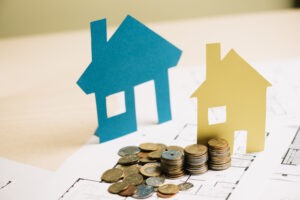As a proud homeowner of your dream property in South Africa, it’s crucial to safeguard your investment and provide financial security for your family. Home insurance plays a pivotal role in protecting your home and possessions from unexpected events. In this article, we’ll explore the importance of home insurance and provide guidance on navigating the insurance landscape in South Africa.
Understanding Home Insurance
Home insurance, also known as homeowners insurance, is a financial product designed to protect homeowners from financial losses due to property damage, theft, and liability claims. It typically consists of several coverage components:
- Building Insurance: This component covers the structure of your home, including the walls, roof, floors, and fixtures. It provides financial protection in case of damages caused by natural disasters, fire, or vandalism.
- Contents Insurance: Contents insurance covers the personal belongings inside your home, such as furniture, electronics, appliances, and valuables. It offers protection against theft, damage, or loss.
- Liability Insurance: Liability insurance provides coverage in case someone is injured on your property, and you’re found responsible for their injuries. It also covers damages if you accidentally cause harm to someone else’s property.
- Additional Coverages: Depending on your policy, you can add additional coverages, such as coverage for valuable jewelry, art, or high-value items.
Why Home Insurance Is Essential
- Financial Protection: Home insurance provides financial peace of mind by covering the cost of repairing or rebuilding your home if it’s damaged by unforeseen events, like a fire, storm, or natural disaster.
- Content Protection: It protects your personal belongings, ensuring that you can replace or repair items in case of theft, damage, or loss.
- Liability Coverage: Liability insurance safeguards your assets in case you’re held responsible for accidents or injuries that occur on your property.
- Mortgage Requirement: Most mortgage lenders in South Africa require homeowners to have insurance as a condition of their loan. This ensures that the lender’s investment is protected.
Navigating Home Insurance in South Africa
When it comes to home insurance in South Africa, consider the following steps:
- Assess Your Needs: Evaluate your property and belongings to determine the coverage you require. Calculate the replacement cost of your home and the value of your possessions.
- Shop for Quotes: Get quotes from multiple insurance providers. Compare the coverage, premiums, and deductibles to find the policy that best suits your needs and budget.
- Understand Policy Terms: Read the policy documents carefully, and make sure you understand the terms, conditions, and exclusions. Don’t hesitate to ask questions to clarify any uncertainties.
- Consider Special Circumstances: If your home has unique features or if you own valuable assets, consider additional coverage options to protect these specific aspects.
- Review and Update Regularly: Periodically review your insurance policy to ensure it remains up to date. Notify your insurer of any significant changes to your property or lifestyle that may affect your coverage needs.
- Maintain Security Measures: Installing security systems, burglar alarms, smoke detectors, and fire extinguishers can not only enhance safety but also potentially lower your insurance premiums.
- Bundle Policies: Many insurance providers offer discounts for bundling home and auto insurance policies. Consider consolidating your insurance needs with one provider to save money.
- Claim Process: Familiarize yourself with the claims process of your chosen insurance company. Be prepared to document and report any damages promptly in the event of a claim.
Bottom Line
Home insurance is a vital component of responsible homeownership in South Africa. It provides the financial protection you need to ensure that your dream home remains a secure and valuable asset. By understanding your insurance needs, shopping for the right policy, and staying informed about your coverage, you can enjoy peace of mind knowing that your home and belongings are well-protected against unexpected events.













